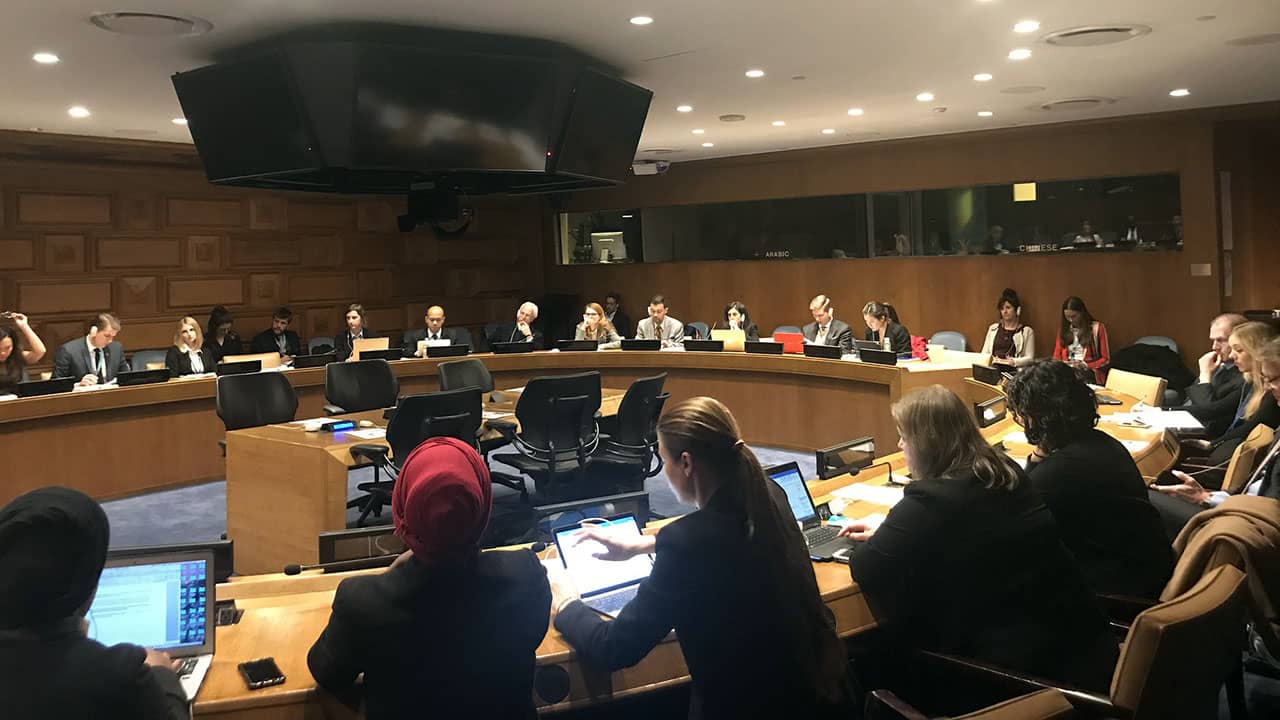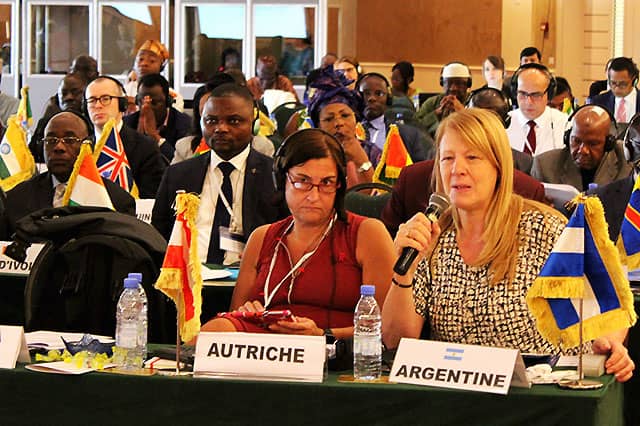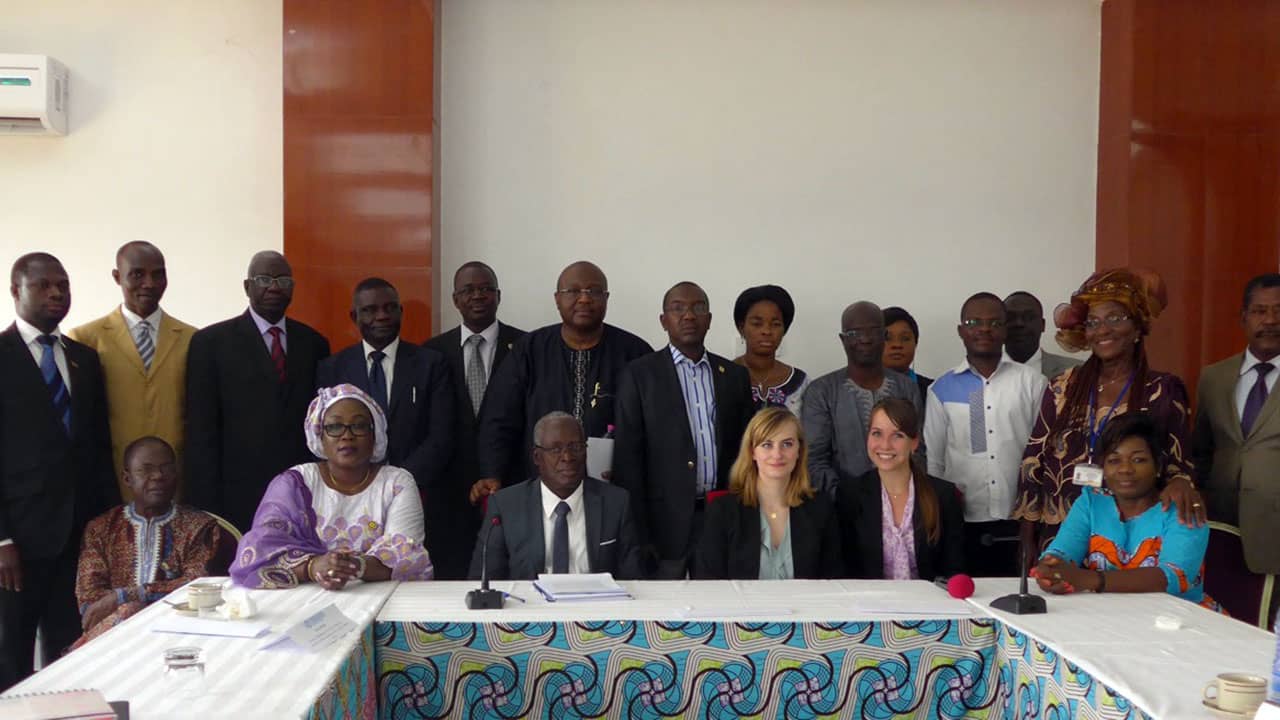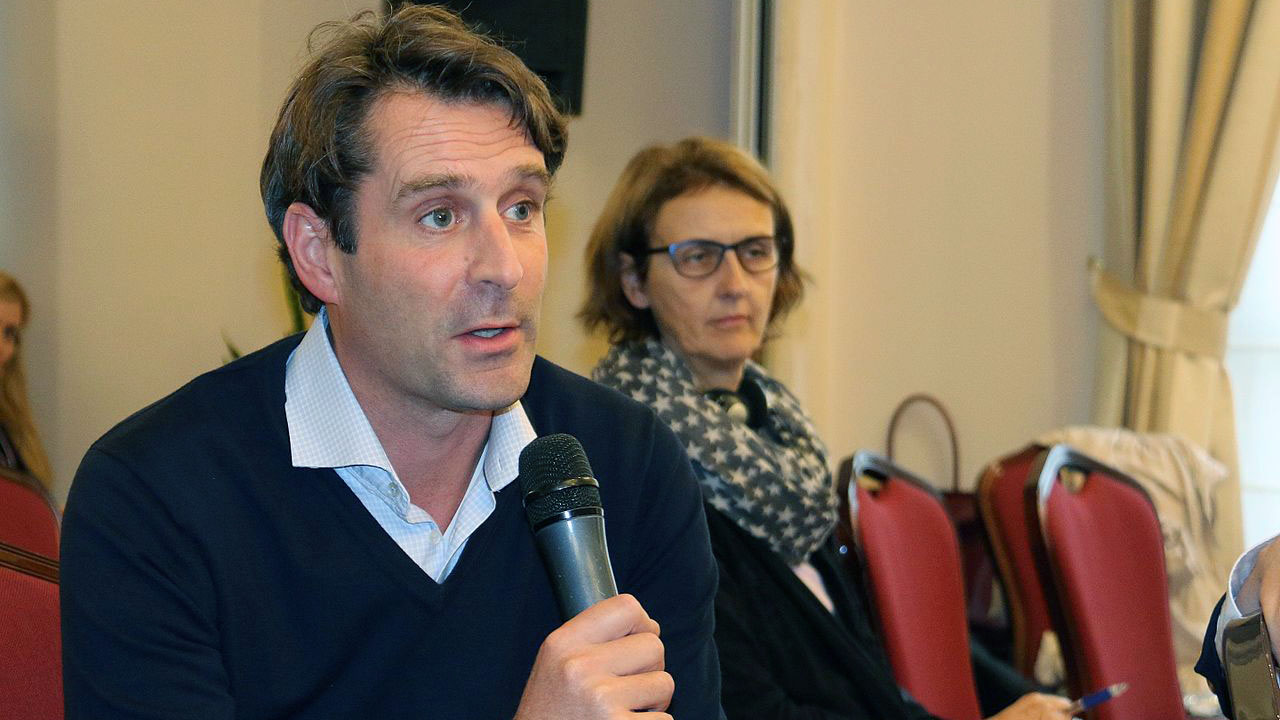Rome Statute
South Africa signed the Rome Statute on 17 July 1998 and deposited its instrument of ratification of the Rome Statute on 27 November 2000.
Status on the domestic implementation of the Rome Statute
The Parliament of South Africa adopted a law, the Rome Statute Implementation Act No. 27 of 2002 which came into effect on 16 August 2002. The Act includes provisions on complementarity and cooperation. The Act incorporates the definitions of the Rome Statute definitions of crimes against humanity, war crimes, and genocide and excludes any type of immunity. As an analysis by ISS Africa states, this Act also allows for the amendment of domestic laws, such as the Criminal Procedure Act, No 51 of 1977, and the Military Discipline Supplementary Measures Act No. 16 of 1999, in order to have these acts conform to the definitions of crimes in the Rome Statute.
The Act also mentions cooperation measures such as arrest and surrender of persons in addition to the prosecution of offences against the administration of justice in accordance with the terms of the Rome Statute.
Kampala Amendments
South Africa has not yet ratified the Amendments to the Rome Statute adopted by the 2010 Review Conference (Kampala Amendments) on the crime of aggression and on the use of certain weapons in armed conflict not of an international character. South Africa however made concrete commitments to ratify the amendments on the crime of aggression: At a side event to the High-Level Meeting on the Rule of Law on “Preventing the illegal use of force through judicial accountability”, organized by Liechtenstein on 24 September 2012 in New York, the Minister of Justice of South Africa, Mr. Jeffrey Thamsanqa Radebe, announced that South Africa will ratify the amendments before 2017.
Agreement on Privileges and Immunities of the Court (APIC)
South Africa has not signed the APIC.
Additional Agreements
South Africa publicly rejected the Bilateral Non Surrender Agreement (BNSA) proposed by the USA.
Additional Relevant Information
The last Universal Periodic Review for South Africa is to be conducted in 10 May 2017.
As a member of the African, Caribbean and Pacific community (ACP), and as signatory of the revised Cotonou Agreement with of the ACP and European Union, South Africa has recognized the importance of the ICC as a mechanism for peace and international justice, and has committed to promote the ratification and implementation of the Rome Statute, to seek to take steps towards the ratification and the implementation of the Rome Some Statute, and to fight against international crime giving due regard to the Rome Statute.
PGA`s involvement in South Africa
Between 1997 and 1999, PGA worked with one the most prominent actors of the anti-apartheid movement, the late Hon. Mr. Dullah Omar, who had assumed the pivotal role of Minister of Justice and Constitutional Affairs in the Mandela Administration. He was the greatest supporter of the fight against impunity in South Africa when he held his position from 1994 to 1999, during the formative years of the Rome Statute system [click here and see page 9]. In 1999, PGA actively contributed to the SADC Meeting of Governmental Experts on the Ratification and Implementation of the ICC Statute, hosted by the Ministry of Justice in Pretoria by drafting SADC KIT on the ratification and implementation of the Rome Statute.
In 2000-2003, PGA received the leadership contribution of the late Hon. Ms. Cheryl Gillwald, MP, Deputy Minister of Correctional Services, Justice and Constitutional Development and Member of PGA, who addressed the II Consultative Assembly of Parliamentarians for the ICC & the Rule of Law, organised by PGA at the UN in New York in parallel to the first session of the ICC Assembly of States Parties (September 2003): Ms. Gillwald presented the Rome of Statute of the International Criminal Court Act 27 of 2002 (the Rome Statute Implementation Act) and her firm commitment to the fight against impunity was a source of inspiration for hundreds of Parliamentarians who decided to take action in their own Legislatures.
Following the failure to arrest President Al Bashir during his visit to South Africa to attend the 25th Assembly of the African Union (AU) - held 14-15 June 2015, PGA submitted to its members in the South African People’s Assembly Memo on background information for the parliamentary hearing, scheduled on 23 June 2015, with respect to the obligations on arrest and surrender of Omar Al Bashir. The parliamentary debate that followed on 24 June 2015 is well captured in this article. During the debates, Hon. James Selfe made a contribution recalling the obligation of South Africa to arrest Mr. Al Bashir.
Process of Withdrawal from the Rome Statute
In June 2015, President of Sudan Al -Bashir, who is subject to two ICC arrest warrants for several counts of genocide, crimes against humanity and war crimes, arrived in South Africa to attend the 25th Assembly of the African Union (AU) - Summit of Heads of State and Government- which was held 14-15 June 2015.
On 15 March 2016, the Supreme Court of South Africa ruled that the refusal of the State to retain Mr. Al-Bashir in the country despite an arrest warrant issued by the ICC against him was incompatible with the legal obligations of South Africa. The Court stated that South Africa had the obligation to execute the arrest warrants issued by the ICC as a signatory of the Rome Statute.
On 19 October 2016, the Government of South Africa to the United Nations Secretary General of its intention to withdraw from the Rome Statute of the ICC.
In reaction to this decision, PGA Members Called on South African MPs to stand against Impunity on 21 October and a letter calling for action to all South African MPs was sent
PGA South African Members played a leading role in a petition deposited by the official opposition before the Constitutional Court on the illegality of the withdrawal process under the South African`s law. On 17 February 2017, the Gauteng High Court, Pretoria, ruled that the notice of withdrawal from the Rome Statute of the ICC, without prior parliamentary approval, is unconstitutional and invalid and ordered President Jacob Zuma to revoke the October 2016 ICC withdrawal notice to the United Nations.
As a consequence, on 7 March 2017 the Government of South Africa filed a notice with the Depository of the Rome Statute, the UN Secretary General, through which it gives effect to the Gauteng High Court’s decision and withdraws from its withdrawal. This means that, as of 8 March 2017, the Republic of South Africa is not anymore among the group of States that started the withdrawal process from the Rome Statute.










